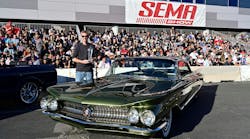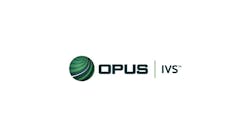After more than a decade, the ongoing lawsuit filed by Connecticut autobody shops against The Hartford Fire Insurance Company will finally be resolved later this year.
The Connecticut Supreme Court heard arguments in Hartford's final appeal of the class action lawsuit on Jan. 13. A jury previously found that the insurer had violated the Connecticut Unfair Trade Practices Act (CUTPA) by fixing collision repair labor rates, and ordered to pay $14.7 million to the shops. A judge later added $20 million in punitive damages to that ruling.
In 2003, more than 1,000 body shops filed suit against Hartford, claiming that the company had suppressed labor rates through their appraisers and by steering customers to DRP shops. The case finally reached trial in 2009.
The original case was prompted by a letter written to the state's insurance department and attorney general by four Hartford appraisers complaining that they couldn't do their jobs in an unbiased manner because of the influence the insurance had over the rates.
According to that 2002 letter: "[W]e cannot honestly say that we believe the current 'prevailing rate' of 40 to 42 dollars an hour is fair. In fact, we believe that is very low due to insurer influence, and not due to market influence… There is a lot of pressure and influence in this area. The Hartford has guidelines they refer to as 'service standards'. These “standards” are much more than suggestions. We perceive them, and the reinspections that result from them, to be an obvious and conscious effort to influence how future estimates are written in the interest of reducing claim pay outs."
Hartford filed post-trial motions claiming that there was insufficient evident to support a CUTPA violation. In 2013, Superior Court Judge Alfred Jennings added the punitive damages.
Harford has appealed that ruling, claiming that because labor rates were negotiated with he repairers, there was no CUTPA violation. They have also asked to disregard what is known in Connecticut as the "Cigarette Rule," as overly broad. The rule was developed as a result of cases challenging tobacco products' TV advertising. It requires that certain criteria be met before a jury can determine a defendant engaged in unfair trade practices. Hartford has argued that the rule is too broad, and that the law should be changed.
Tony Ferraiolo, owner of A&R Body Specialty, and president of the Auto Body Association of Connecticut (ABAC), attended the January hearing.
"The Hartford spent their entire time claiming they had done no wrong, and that the case should not have been tried under unfair trade practices, and that the Cigarette Rule shouldn't have been applied," Ferraiolo says. "Their argument is based on changing the law, since they were found guilty by the lower courts."
According to a brief filed by the attorneys for the autobody shops, the Hartford is essentially asking for a "retroactive pardon."
"After more than a decade of litigation, a prior appeal to this court on class certification and a 17-day jury trial, The Hartford does not assert a single error by the trial court in any evidentiary ruling, in its charge to the jury on the CUTPA standard that has been the law of this state for more than 30 years, or argue that the jury’s verdict was not supported by the evidence—the usual bases for attacking a judgment on appeal," the brief states. "Instead, faced with the jury’s finding that The Hartford violated public policy and well-settled law, The Hartford takes the approach that if you don’t like the verdict, change the facts, if your conduct violates the law, change the law, and if all else fails, argue against claims plaintiffs are not making."
After the original jury verdict, Ferraiolo says that for roughly two weeks the insurer was forced to pay posted rates at body shop until a judge ordered a stay on the decision pending the appeals. "During that two-week period, other insurance companies were coming in and paying higher concession rates, because they were afraid that since the court had rendered a decision, then the market was going to adjust," he says.
The state Supreme Court could issue a decision anytime in the next four months. If the autobody shops prevail, Ferraiolo expects that it will have ramifications beyond just Hartford's operations. "If one company is sanctioned to negotiate claims differently, and have to provide an unbiased determination of the labor rate, then other companies will follow suit," he says. "This will set a precedent, and will have a ripple effects throughout neighboring states and the country."
Subscribe to ABRN and receive articles like this every month…absolutely free! Click here to subscribe.

